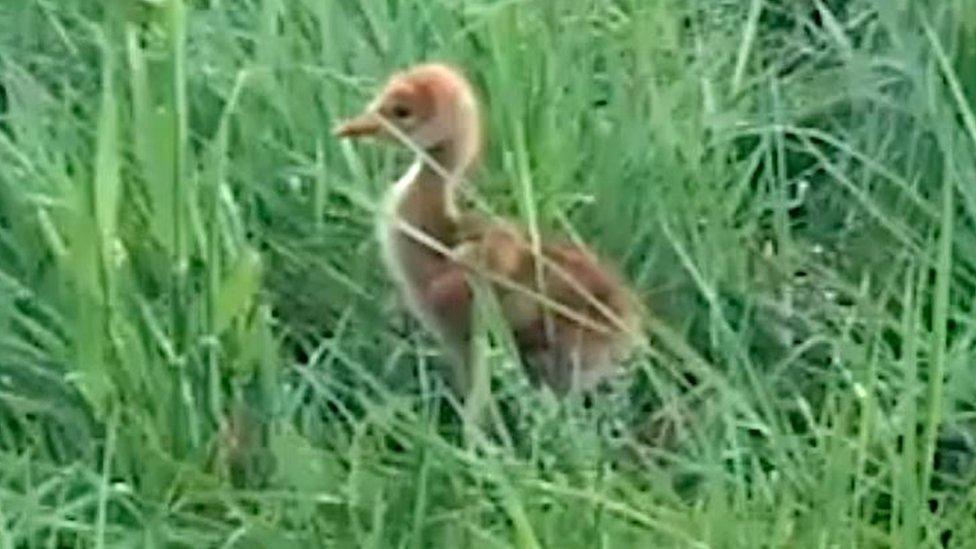Nature reserve sees first crane chick take flight
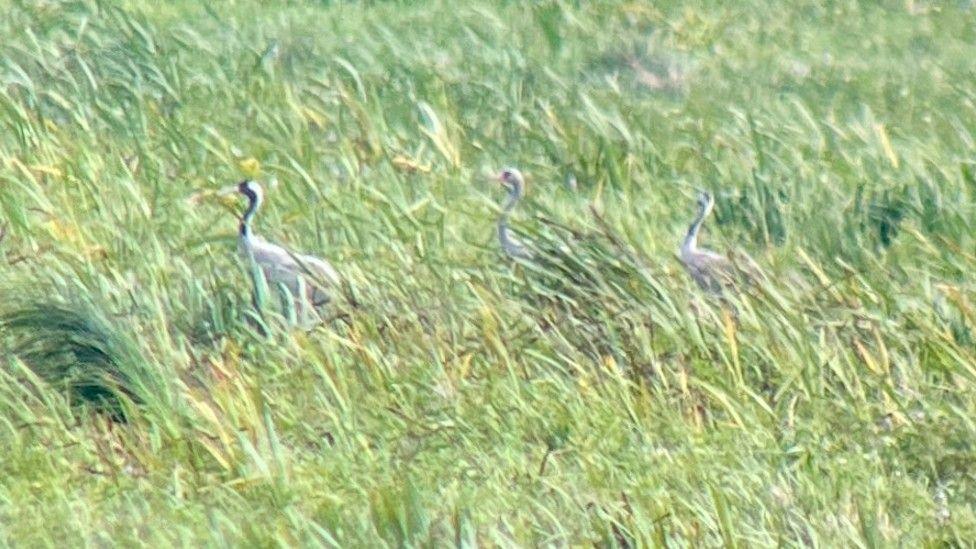
A pair of adult cranes are spotted in the long grass along with their chick
- Published
A pair of cranes that have been breeding at a nature reserve for five years have successfully reared their first chick, believed to be the first ever to have fledged from the site.
The 4ft (1.2m) tall common cranes - Britain's tallest birds - began breeding on Wicken Fen in Cambridgeshire in 2019.
Since hatching, the trio have been spotted on the Ouse Washes in Welney, on the Norfolk border, which was described as an "exciting and rewarding moment" by the National Trust.
The elusive birds' progress was captured in a blurry photograph, taken on a phone's camera looking through a telescope.
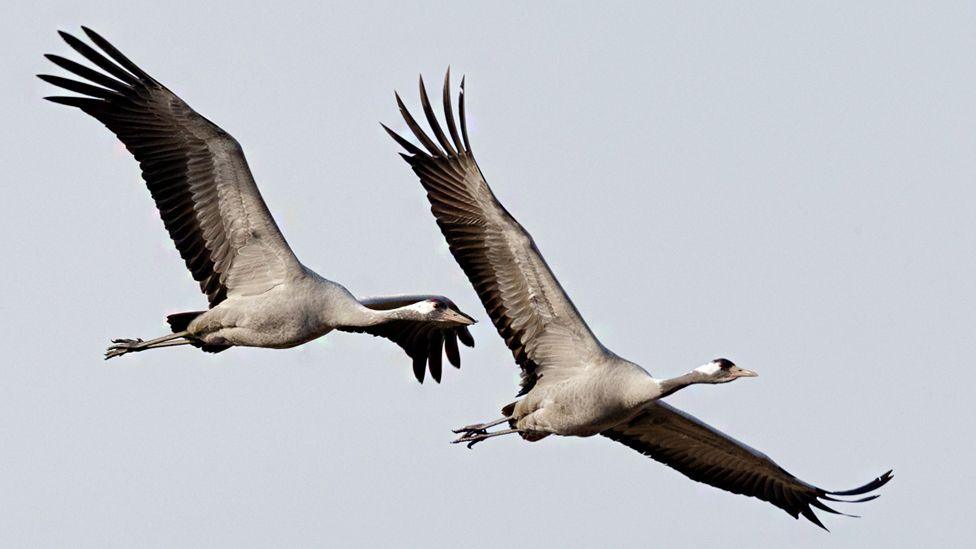
The pair have been attempting to rear young at Wicken Fen for years
When the pair began breeding, it was thought to have been the first time it had happened at the reserve, in the Fens near Ely, in about 400 to 500 years.
Cranes nest in remote, wet areas, protected from predators and well away from public paths.
The pair have had a number of eggs hatch over the years, but this is believed to be the first chick to have been reared to flight.
Crane expert Norman Sills knew the breeding was successful when he spotted the three on the Ouse Washes, where cranes often congregate from August onwards.
Wildlife communicator Ajay Tegala, who works for the National Trust at Wicken Fen, said: "When Norman spotted the Wicken Fen pair with a juvenile 12 miles away, we finally knew for sure they'd done it.
"Despite being such tall birds, they can be very hard to spot. Cranes are sensitive to disturbance, so seek out remote, safe places."
Speaking of his attempts to get photographic proof of the birds at Welney, he said: "After several hours of searching and many miles of walking, I managed to get a blurry photograph on my phone through a telescope, from a safe distance. But it was such an exciting and rewarding moment."
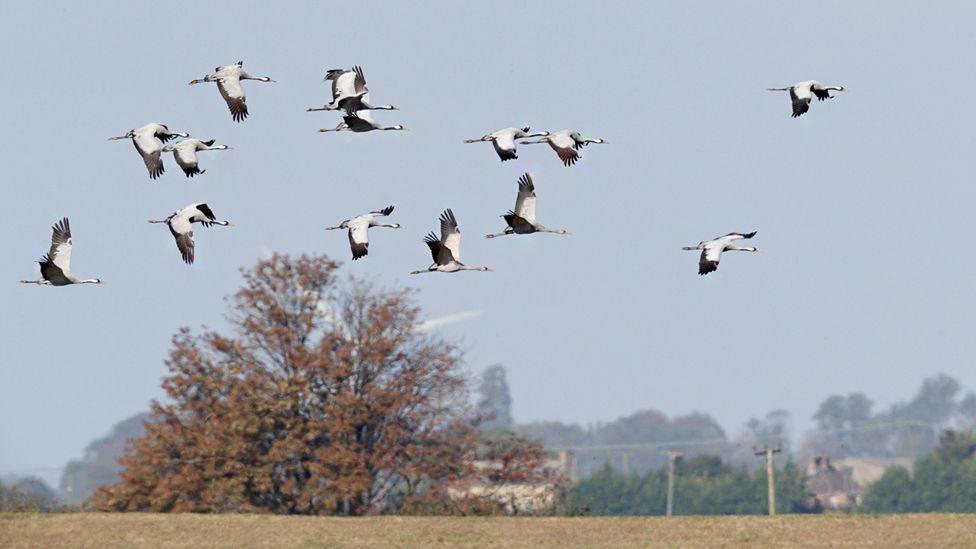
Cranes often settle at Welney, on the Cambridgeshire-Norfolk border, during late summer
Wicken Fen's countryside manager Alan Kell said: "It is thanks to the National Trust's habitat restoration work across the wider Wicken Fen that cranes returned here and have been able to breed successfully.
"And it is a network of similar projects that enables East Anglia to support a growing population of these elegant birds year-round."
Lizzie Bruce, site manager for the Wildfowl and Wetlands Trust at Welney, said: "It is vital that conservation organisations work together to both look after our precious wetlands and create more spaces for rare wildlife.
"We recently had 22 cranes, including eight juveniles, making use of our restored wetland on Lady Fen."
The UK crane population has been steadily increasing. A record 80 pairs were confirmed breeding in the UK in 2023, with 36 young known to have fledged, according to the RSPB.
This puts the common crane population at the highest level, external since the species returned to the UK in 1979.
Get in touch
Do you have a story suggestion for Cambridgeshire?
Follow Cambridgeshire news on BBC Sounds, Facebook, external, Instagram, external and X, external.
Related topics
- Published21 January 2024
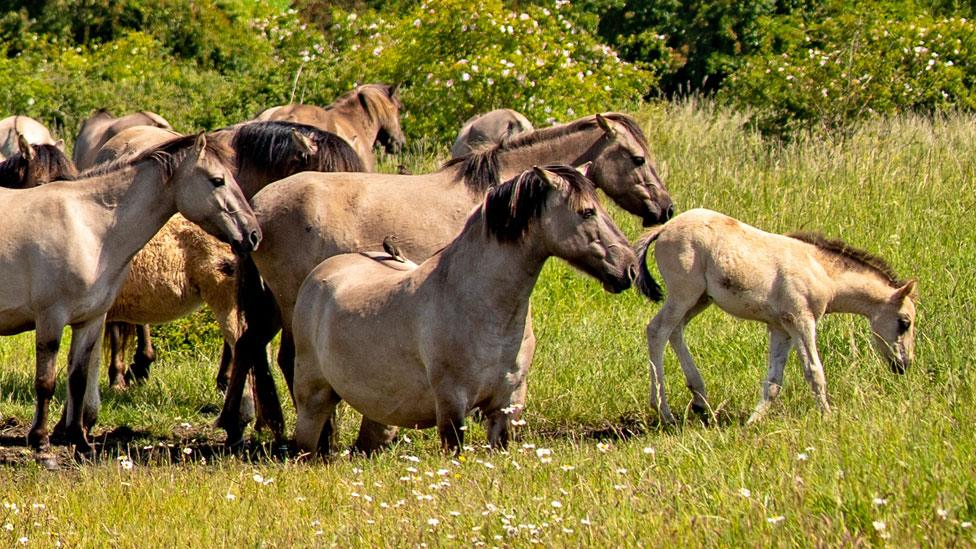
- Published1 May 2024
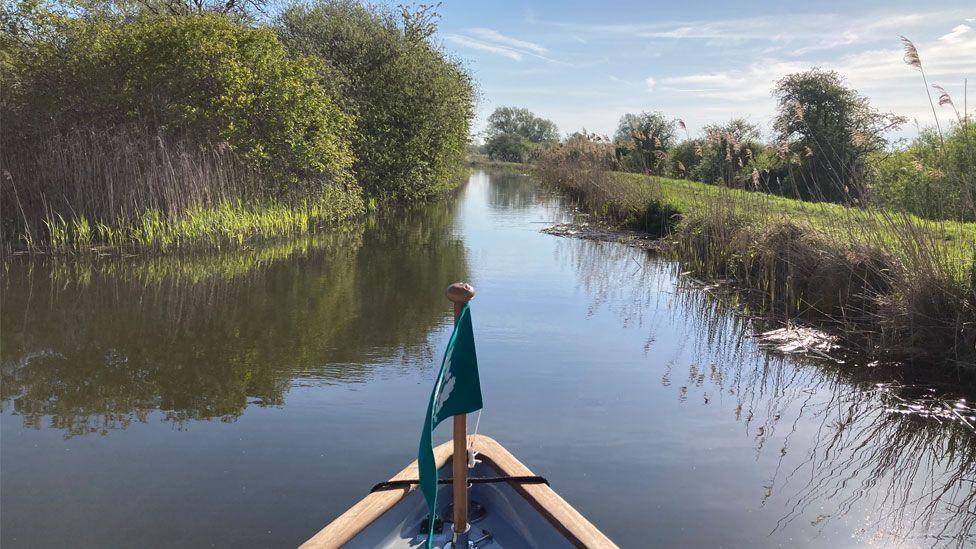
- Published26 March 2024
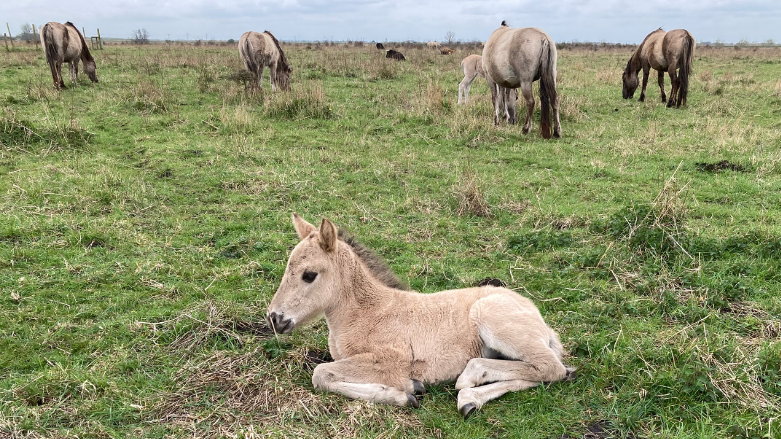
- Published30 May 2019
